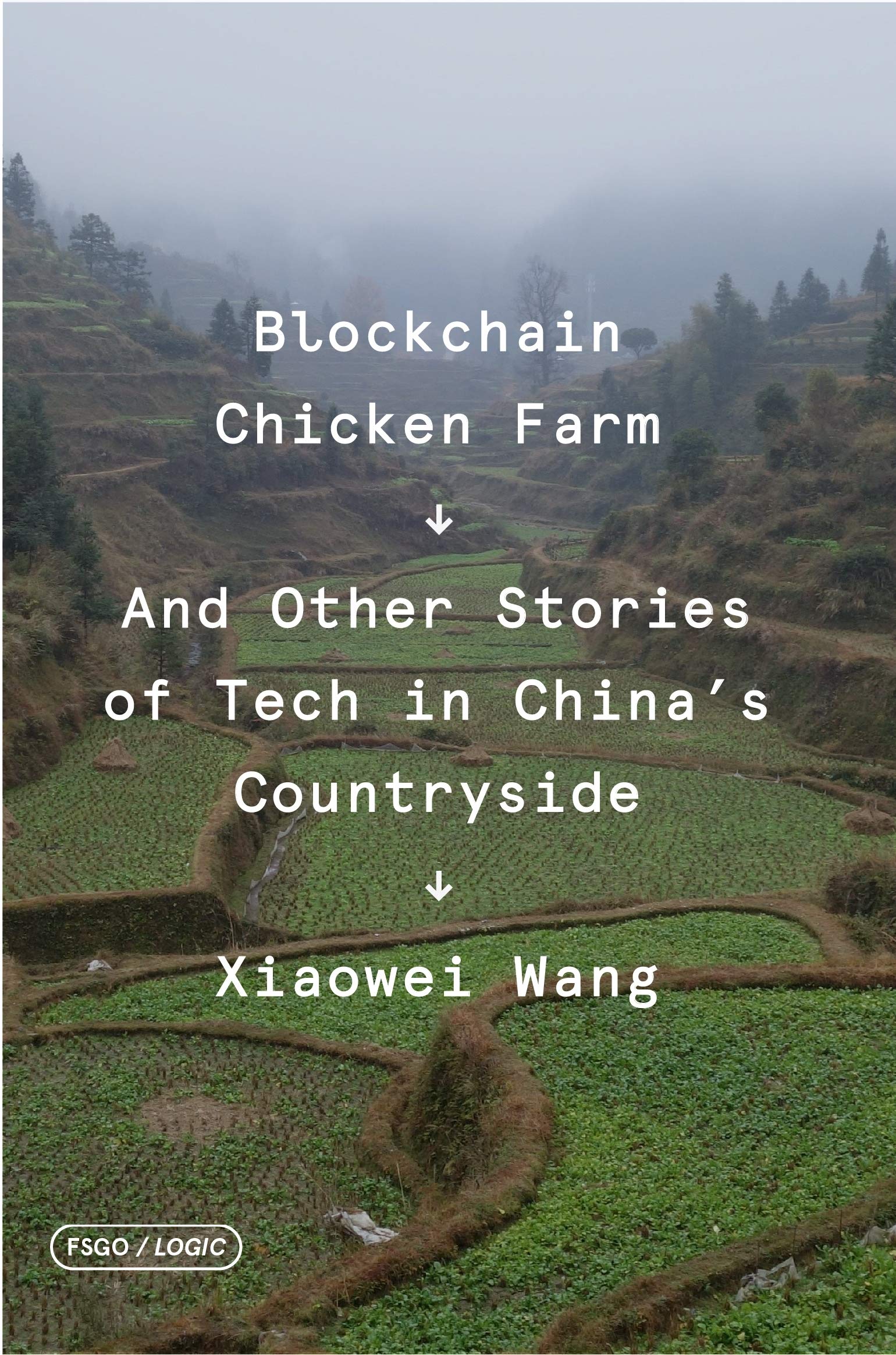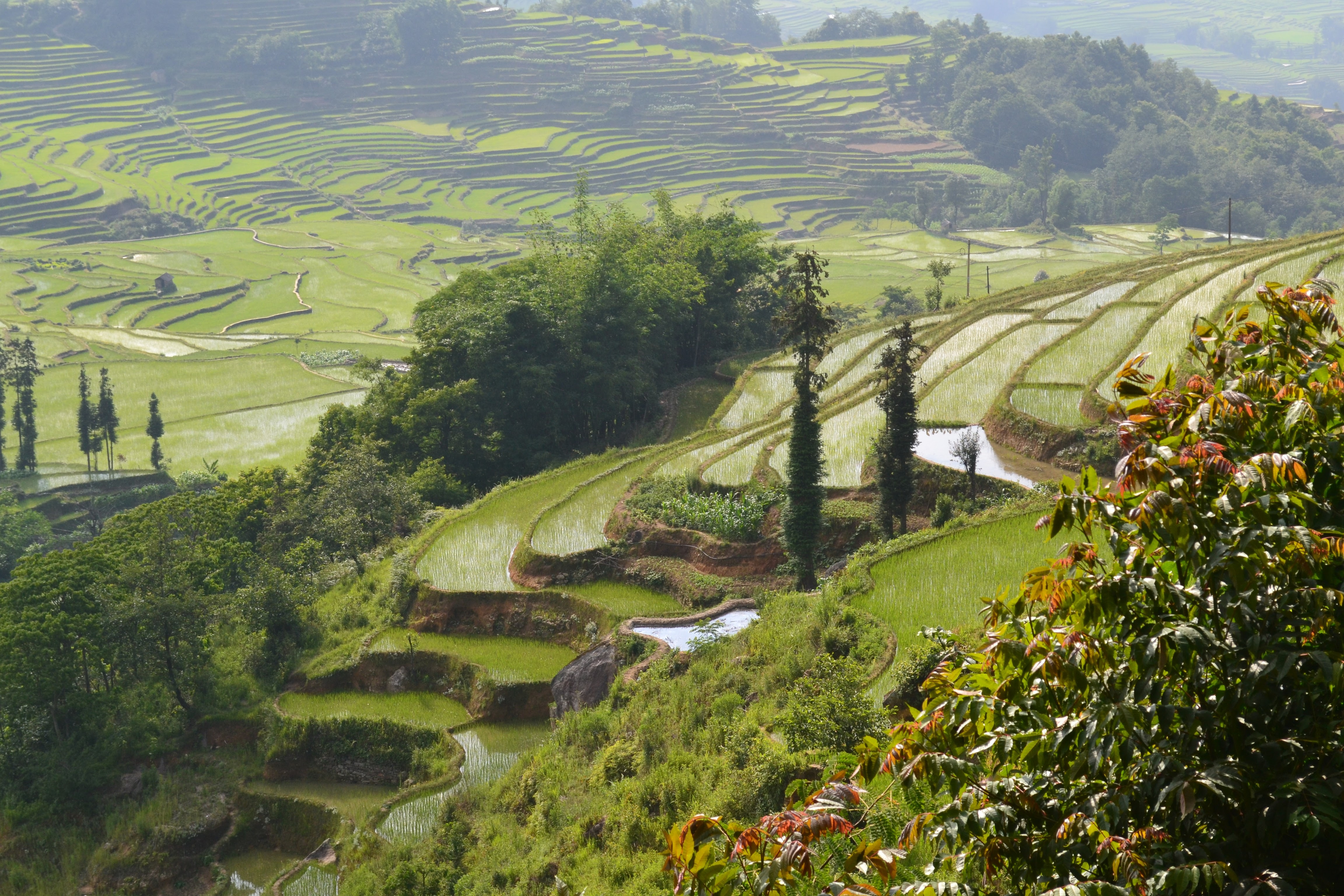
Our latest read for the she256 book club was Blockchain Chicken Farm: And Other Stories of Tech in China's Countryside by Xiaowei Wang, a PhD student at UC Berkeley. Traversing across provinces and technology, this book offered a glimpse into the life of a modern Chinese peasant. Instead of farming with traditional tools or confining business just to the Chinese market, these rural residents are adopting buzzword tech like AI and blockchain to reach an international market.
I first discovered this niche text because a friend of mine, Chris, picked up a copy at a local bookstore in Berkeley. It quickly became one of my cult reads because it totally changed my perspective about China and the people who live inside its cavernous borders. After reading it, I went into a deep dive, listening to Acquired podcast episodes on Alibaba and Tencent and even perusing my friend's old newsletter where he compared prices of products on Amazon versus Alibaba. From a Westerners perspective, China is shrouded in mystery and suspicion. I've only been taught one narrative about China - that it's communist and backward - but I never stopped to understand its actual citizenry.
Xiaowei opened my mind, popping the lid off a jar of inner curiosities about the East. I haven't traveled to the Eastern hemisphere before, but now I'm craving bowls of stir-fried tomato, egg and pickled radishes, with steaming rice from a local family's harvest.
See below for the questions that informed our club's discussion of blockchain within supply chain, the surveillance state, AI ethics, pyramid schemes, Chinese politics and more.
Part I

Automating away farm labor with drones, blockchain and AI
Introduction
-
Have you heard of the term “metronormativity” before? What does it mean to you?
-
For anyone who wants to share, do you come from a rural, urban or suburban area? How do you think that’s shaped your worldview (especially considering what country you come from)?
-
Do you think present-day tech is more liberating or dehumanizing? Where are big companies like FANG on that spectrum?
Chapter One
-
How does Wang’s description of real China under communism compare to what you previously thought about China or were taught in school (from a Western perspective)?
-
How would you describe the West’s image of China?
-
What are some of the implications between having distant rural and urban classes in a large society?
-
Do you think American and China will ever come to understand one another?
“What is China but a projection of American fears and desires? And for China, what is the United States but a projection of desires and fears?”
- What are these whimsical pseudo science futuristic recipes? What do you make of them?
Chapter Two
-
Why is food safety in China such an issue? Do you think tech can solve the problem of food safety?
-
How can tech help scale trust (ie in the case of food safety) when blockchains are inherently based on a default state of distrust?
-
How does Wang's writing style and anecdotes change your perception of China?
-
Do you think we’ll see more blockchain use cases within the supply chain or are the costs too prohibitive?
-
Do you think humans are innately selfish, that Hobbesian rhetoric that “life is nasty, brutish and short?”
-
Do you think blockchain governance & the developers building it are as narrow as Wang describes (white and male)? What are the dangers in this?
Chapter Three
-
What are the dangers of optimizing pig (and human) life to such a calculated degree?
-
Where do humans fit into this new, efficient, AI driven world? Will we be replaced by AI?
-
Let’s dive into the ethics of AI - who are making these decisions on what’s considered an “optimized life?” What happens to free will?
-
When will AI overtake us, if ever?
-
Big Tech is trying to sell us “a reassuring, controlled world where unfettered optimization and automation are inevitable.” Do humans actually want this?
-
What is your definition of the meaning of work?
Chapter Four
-
Compare the gig economy in the US (i.e. being an Uber or Doordash driver) to the drone operator economy in China - which one seems better or more ethical?
-
The class distinctions in China are pretty stark (i.e. the VCs and Tsinghua grads in the front, the drone operators in the back). Do you think technology will help close this gap?
-
Do you believe in the equalizing effects of technology?
-
Will China’s “re-peasantization” campaign work? Or will China’s rural workers demand a better life and more autonomy?
Part II

Mobilizing rural villagers with AliExpress and AliPay
Chapter Five
-
Is Silicon Valley still the epicenter of innovation (according to our modern definition) - or are other places taking over?
-
How did the perception of “Made in China” being a bad thing come about? Is this just American nationalism?
-
Why is it still so hard for tech companies like Facebook, Uber, Google to enter China still, even when lots of other international companies have footholds into the country?
-
How does innovation in China differ from innovation in the US?
-
Do you agree with Naomi Wu when she says “you have to give the computer what it wants”? Would you want to become a cyborg?
Chapter Six
-
Do you think it’s right for the Guiyang police to collect data on its citizens for the Real Population Project in the name of public safety? Or is this peak surveillance state?
-
Is the American surveillance state just as bad as China's, just disguised better?
-
What are your reactions to knowing you’re being surveilled constantly (i.e. by Alexa)?
-
What do you think the ramifications will be as China is transitioning from community policing to more American-style policing?
-
Do you think predictive policing has the potential to be effective?
-
Do you think the people working on facial recognition software for surveillance states are unethical? Or just unable to see the bigger picture?
-
Do you mind being surveilled by Alexa, even if “you have nothing to hide”?
-
What’s the danger of reducing human life to numbers, to “quantifauxcation” —> Sacred Economics parallel
Chapter Seven
-
Is Taobao actually helping rural villagers with their “Taobao Villages” or just exploiting them and their environment?
-
China seems to be ruled by both the CCP and huge corporations like Alibaba - how is this tension compatible? Do either of them have the villagers’ best interest?
-
Is Alibaba just an arbitrage platform (i.e. drop-shipping)?
-
How does Alipay trap rural sellers? Do they have any other options?
-
What are the ramifications of our lives being dominated by shipping and ads?
-
Have you ever experienced the “cruel optimism” of shopping?
Chapter Eight
-
What do you think is the appeal of multi-level marketing pyramid schemes? Why do so many people fall into their trap?
-
Should mysticism and capitalism be mixed? Is shopping becoming our new spiritual outlet?
-
What do the rise of livestream stars and marketing say about the state of our collective human condition? Are we okay?
-
How did Peppa Pig become an icon for the disaffected shehui ren? Who exactly are these people and what do they believe?
Wrap Up Questions
-
What feeling did you come away from this book with? Optimism, doubt, sadness?
-
How did this book change your perception of life within rural China?
-
What daily practices in your life, if any, will you change or reevaluate after reading this book?
Additional Resources 🪐
- Acquired podcast: Alibaba
- Acquired podcast: Tencent
- Naomi "SexyCyborg" Wu: LEBs - Cyberpunk Wearable Fiber Optic Implant Transillumination
- New York Times: The Untold Technological Revolution Sweeping Through Rural China
- Survey on AI existential risk scenarios
Our next meetup is on August 21 at 12pm PDT, where we'll be chatting about The Psychology of Money by Morgan Housel. For more info, join the she256 Discord!